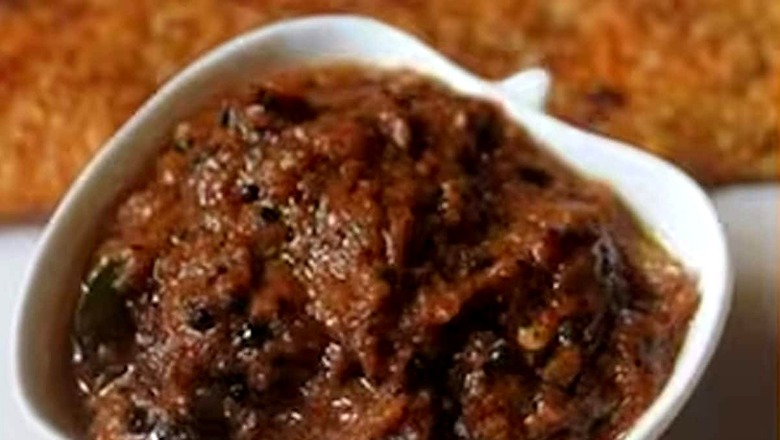
views
It is common to discover Indian kitchen cabinets with spills of pickles and chutneys. Among many chutneys, green chutney and tamarind chutney are two types of condiments which can be found in every home. Tamarind is one of the most popular souring agents in the South Indian cuisines. It is also known as Imli. There are several ways through which you can make the chutney. The main ingredient of this chutney is common but the cooking process and spices used in the recipe are different for various peoples. We often consume this chutney with Idli and dosa.
To prepare the tamarind chutney, you need tamarind pulp, garlic, ginger, chillies, cumin, jaggery, raisins, oil and salt. After arranging these ingredients, you must heat the pan on a low flame after pouring some oil into it. Now, add garlic, ginger and chillies to the pan and fry it for two minutes. Make sure to not burn yourself while stirring the pan. Now, from the side of the pan add tamarind pulp and salt.
After the tamarind pulp starts boiling, add jaggery, raisins and cumin powder. Once you add the jaggery, let the chutney simmer for 10-12 minutes on low medium. Keep stirring the pan.
Once the jaggery has fully melted and no particles are visible, add the water as per your choice to adjust the thickness of the chutney if required. If you are adding water, then cook it for an additional 3-4 minutes. Allow the Tamarind chutney to cool down at room temperature.
To preserve its freshness and prevent bacterial growth, pour the cooled chutney into an air-tight container or a glass bottle. You must make sure that the container is made up of non-reactive material to avoid any unhealthy reaction. You can store the chutney for up to one year.
You can eat with all sorts of snacks such as samosas, pakoras etc. You can also drizzle it on the top of Aloo Tikki Chaat, papri chaat, sprouts chaat etc. It can also act as a sweet appetizer for non-veg recipes such as Chicken Tikka, lamb tikka and Shami Kebab.














Comments
0 comment